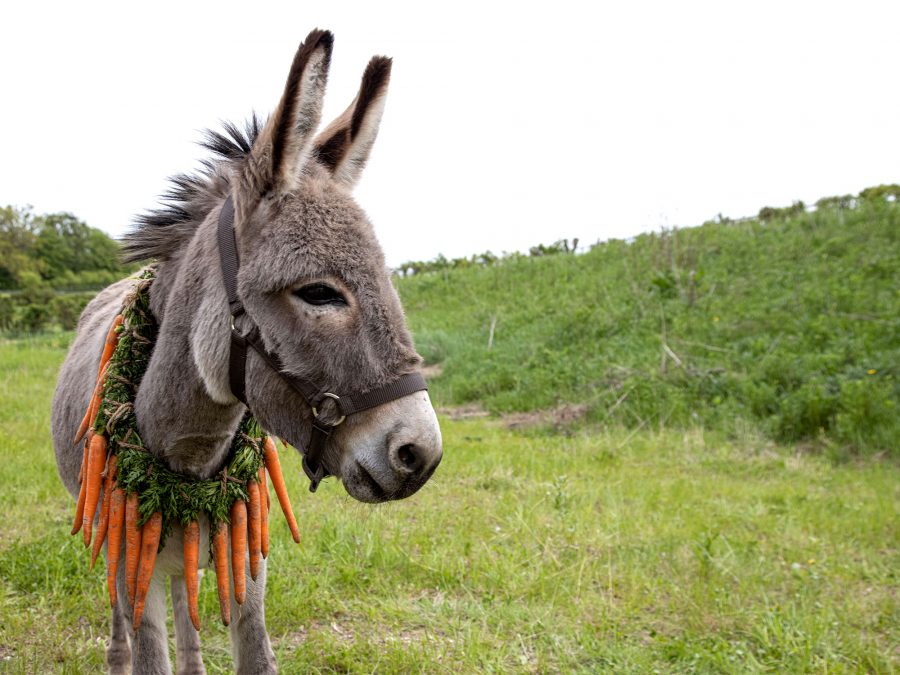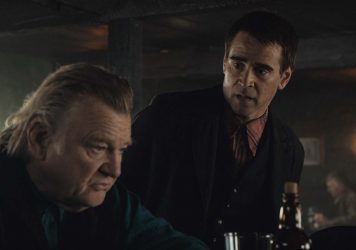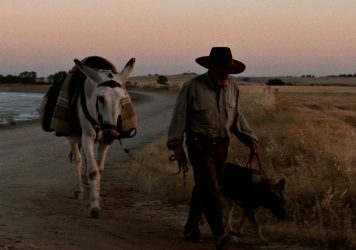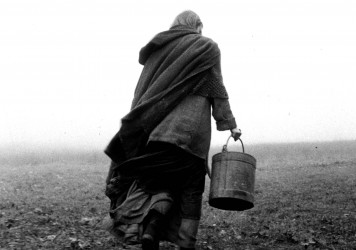A donkey sets off on a long journey to reunite with his mistress in Jerzy Skolimowski's far-reaching drama.
Named for the sound a donkey makes, EO (“Eee-ooo, eee-oo”) follows one such noble beast as it travels across the breadth of Poland and beyond, bearing mute witness to a carnival of humanity at its best, worst and weirdest. In its conception – as an existential musing on man’s inhumanity to man, endurance of suffering, and capacity for grace across the blink of a lifespan – as well as in the outline of several of its scenes, EO is an incredible and unlikely act of hubris: a remake of Robert Bresson’s inner-circle Film Studies 101 masterpiece Au Hasard Balthazar. But it’s also shot through with the outré symbolism and impulsivity that have long characterised its director’s long, strange career, particularly its late, nothing-to-prove stages. In short, Jerzy Skolimowski is 84 years young, and he is absolutely vibing.
EO opens at a small traveling circus, where the titular donkey performs as part of a duo act with an adoring young performer, who nuzzles EO’s nose and strokes his fur a la Balthazar’s Anne Wiazemsky. But EO changes hands often throughout the course of the film, for the first time following an animal-rights protest. The story then daisy-chains its way along with frequent absurd contrivances, a clownish narrative logic that speaks to Skolimowski’s atheist metaphysics.
EO ends up in a horse farm, becomes the mascot of a rural town’s soccer team and inadvertently incites a riot with a rival club’s hooligans, toils in factory farms, is bought and sold on the black market, crosses international borders, goes underground and into the Alps, accompanies metalhead lorry drivers, developmentally disabled children, bureaucrats, and a defrocked priest.

Skolimowski offers sketch-comical views of Polish nationalism and machismo, EU migration, the legacy of the Holocaust, and bourgeois decadence in the form of a vampish stepmother played by an unexpected cinematic legend. There are children at the beginning of their life, men at the violent end of theirs, and a veterinarian’s clinic where someone poses the key question of the film: why should it suffer? Throughout, the director uses fisheye lenses from odd camera positions, giving a distorted view of humanity’s foibles.
Updating his career-long uncentered, faddish style, he explores the poetic surrealist potential of modern film techniques with strobing red lights, transhumanist drone-shot interludes, and an intense score incorporating traditional accordions and EDM bass bumping; in one scene, EO stumbles into a wolf cull shot like a rave, with green laser-sight beams lighting up the forest. Again, like a rave.
In one sense, EO is an evolution of Skolimowski’s 2010 survival thriller, Essential Killing, the tale of an escaped Taliban prisoner on the run in a primal wintry landscape. The next logical place to go from such an elemental story is to make one starring a donkey, instead of Vincent Gallo. The final question, then is: what use is plot, to a donkey? Or to an atheist, for that matter. Think of Skolimowki at this stage of his career and life as a filmmaker happily grazing, indulging in an animal need for cinema.
Little White Lies is committed to championing great movies and the talented people who make them.
Published 1 Feb 2023
The return of this Polish maverick who directs mad movies and stars in MCU bit parts.
Vibe-heavy take on Bresson’s Au Hasard Balthzar, but very much it’s own eccentric thing.
A winding existential journey packed with emotional and political punch.

Martin McDonagh deploys his signature acerbic wit to an affectionate folktale as he reunites with Brendan Gleeson and Colin Farrell.

A tender, evocative portrait of a man named Manolo and his trusty donkey sidekick, Gorrión.

By Matt Thrift
Hungarian colossus Béla Tarr’s ‘last film’ is a magnificent, towering achievement.